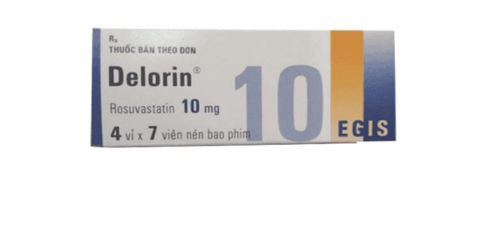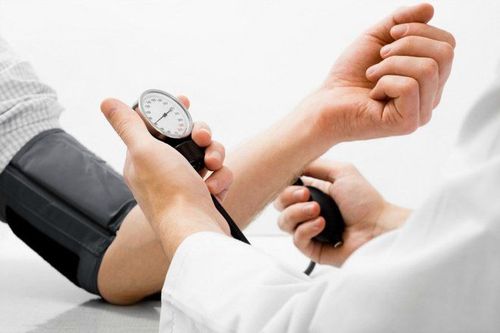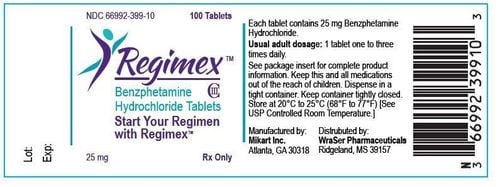This is an automatically translated article.
Finding shape after giving birth is the desire of many women. However, to ensure health and not affect the process of raising children, women need to maintain a healthy diet, combining gentle exercise. Here are some notes for women to consider to lose weight safely after giving birth.
1. Notes for safe weight loss after giving birth
Having an ideal weight after giving birth is the desire of most women. However, the process of getting in shape requires perseverance as well as a long-term plan. The Centers for Disease Control and Prevention (CDC) recommends that women in the healthy weight range who are carrying a baby gain between 11.5 and 16 kg. Recommended weight gain for prospective underweight, overweight, or multiple children is different.According to research published in the American Journal of Obstetrics & Gynecology, weight gain during pregnancy comes from: baby, placenta, amniotic fluid, blood, uterine enlargement, fat. Excess fat acts as an energy reserve during childbirth and lactation. However, excessive weight gain can lead to a lot of fat. This is what people often call "baby weight" and it's very common. According to CDC Trusted sources, nearly half of pregnant women gain more than the recommended weight during pregnancy. The consequences of maintaining some of this excess weight after pregnancy include: an increased risk of being overweight, an increased risk of diabetes and metabolic heart disease, and a higher risk of complications when a woman has the condition. gestational diabetes.
MORE: Diet for healthy postpartum weight loss
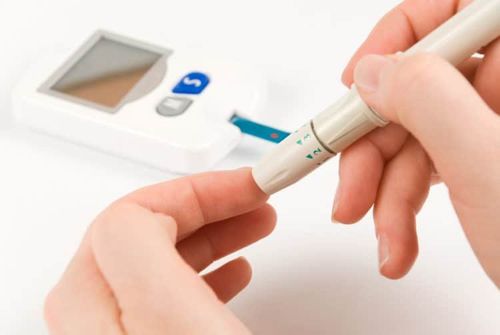
Giảm cân an toàn sau sinh giúp ngăn ngừa nhiều bệnh lý như tiểu đường
2. Safe ways to lose weight while breastfeeding
2.1. Set realistic goals
You should ignore the stories of celebrities who can quickly get in shape, it only adds to your pressure, because actually losing weight after pregnancy takes time. In a 2015 study, 75% of women weighed more 1 year after giving birth than before pregnancy. Of these women, 47% were at least 4.5 kg heavier at 1 year and 25% continued to gain 9 kg.
Depending on the amount of weight the mother has gained during pregnancy, after giving birth you make some appropriate eating and weight loss plans. If mothers gain more weight than expected, make a plan of exercise and maintain appropriate nutrition. If necessary, consult a doctor or nutritionist.
2.2. No dieting
A weight loss diet is a very low calorie diet that aims to help you lose a large amount of weight in the shortest time possible. After giving birth to a baby, mothers' bodies need good nutrition to heal and recover. In addition, if you are breastfeeding, you will need more calories than usual.A low-calorie diet can lack important nutrients and can leave expectant mothers feeling fatigued. This is the opposite of what a mother needs when taking care of a newborn and especially when she often falls asleep. Assuming your weight is currently stable, reducing your calorie intake by about 500 calories per day will safely stimulate weight loss of about 0.5 kg per week. According to the Academy of Nutrition and Dietetics, this amount of weight loss is considered safe for women who are breastfeeding. For example, a woman who eats 2,000 calories per day will be able to eat 300 fewer calories and burn 200 more calories through exercise, reducing a total of 500 calories.
SEE ALSO: A guide to pregnancy weight and weight loss for mothers after giving birth
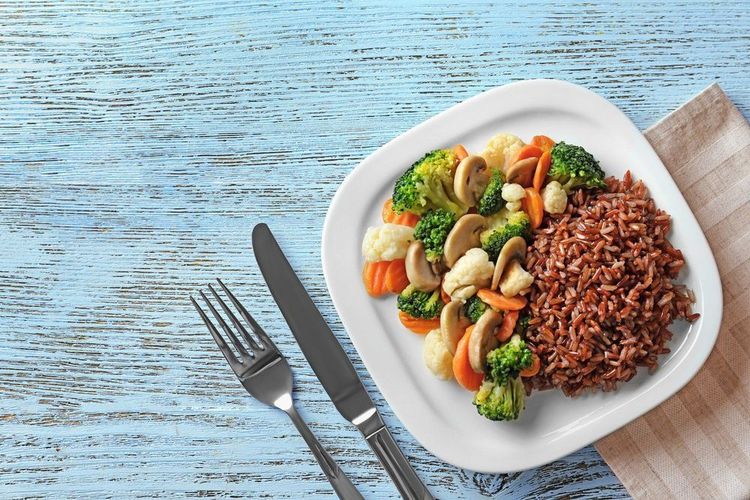
Bạn chỉ nên ăn kiêng lành mạnh và khoa học
2.3. Breastfeed if you can
Trusted sources by the World Health Organization (WHO), the American Academy of Pediatrics (AAP), and the CDC all recommend breastfeeding. Breastfeeding for the first 6 months of life (or longer) has many benefits for both mother and baby. Specifically:Provide nutrition: Breast milk contains all the nutrients a baby needs for growth and development during the first 6 months of life. Supports your baby's immune system: Breast milk also contains important antibodies that help your baby fight off viruses and bacteria. Reduced risk of infant disease: Breastfed infants have a lower risk of asthma, obesity, type I diabetes, respiratory disease, ear infections, and sudden infant death syndrome. (SIDS) and gastrointestinal infections. Reduces maternal disease risk: Breastfeeding reduces the risk of diseases such as high blood pressure, type II diabetes, breast cancer, and ovarian cancer. Additionally, research has shown that breastfeeding can help mothers lose weight after giving birth. However, during the first 3 months of breastfeeding, mothers may not lose weight or even gain weight. This is due to increased calorie needs and intake, as well as decreased physical activity during lactation.
2.4. Track your calories
In case you find that intuitive eating doesn't seem to work, calorie tracking can help moms calculate and balance energy and food intake. It can also help moms make sure they're getting enough calories to give you the energy and nutrition you need. Moms can do this by:Keep a daily food diary Take pictures of your food as a reminder of what you ate Try a calorie tracking app on your smartphone Smart Share your daily calories with a friend who is also tracking calories.
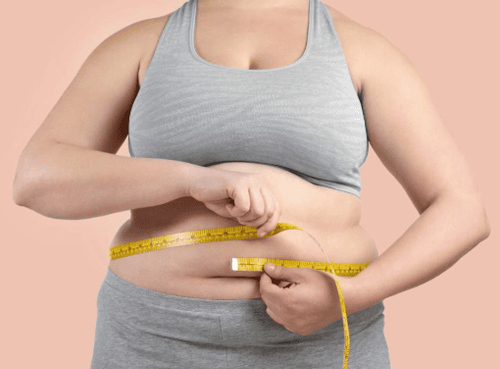
Nữ giới cần theo dõi lượng calo của bản thân hàng ngày
2.5. Eat foods rich in fiber
It's time for moms to include those healthy grains and veggies on their family's daily grocery list. Eating foods rich in fiber has been shown to help with weight loss. For example, a 2019 study of 345 people found that increasing fiber by 4 grams over what participants ate before the study resulted in an average weight loss of 1.5 kg. in 6 months.According to a 2015 clinical trial, soluble fiber foods can also help you feel fuller longer by slowing digestion and reducing levels of hunger hormones. These effects on digestion may help reduce calorie intake, although the results of studies are generally mixed.
2.6. Use healthy proteins
According to research published in the American Journal of Clinical Nutrition, protein in postpartum mothers' diets can boost metabolism, reduce appetite, and reduce calorie intake. Studies show that protein has a greater "thermic" effect than other nutrients. That means the body uses more energy to digest than other foods, resulting in more calories being burned.Many other studies also show that protein can also suppress appetite by increasing levels of the satiety-reducing hormones GLP and GLP-1, as well as decreasing levels of hormones that regulate hunger. Ghrelin.
Healthy sources of protein include: lean meats, eggs, low-mercury fish, legumes, nuts and dairy products...
MORE: Simple exercises for moms at home the first month after birth
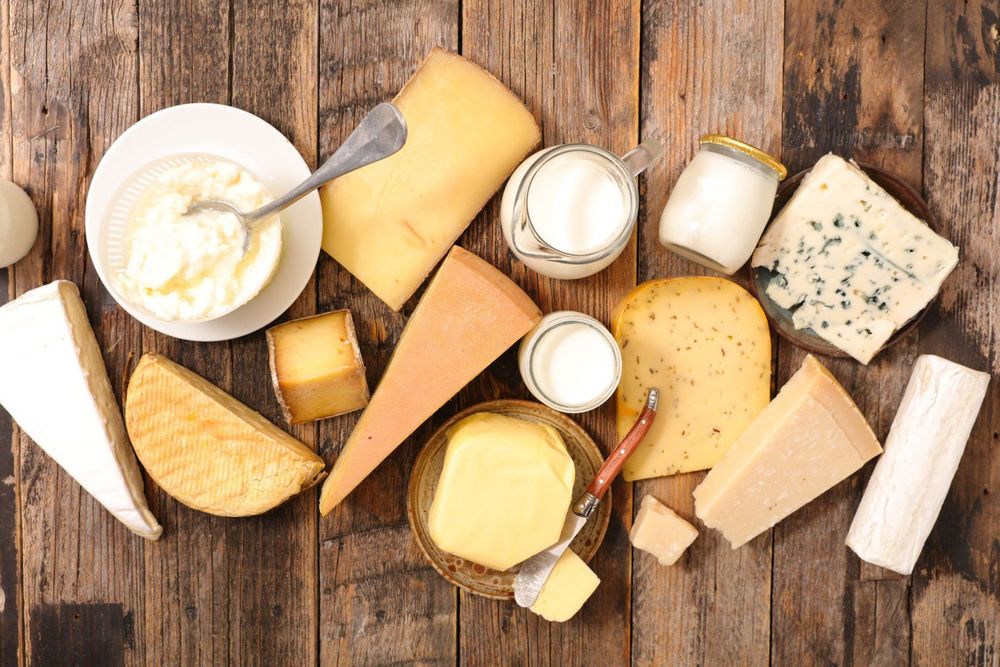
Các sản phẩm từ sữa có nguồn protein lành mạnh
2.7. Avoid adding sugar and starch
While foods high in sugar and starch may be appealing, refined sugars and carbs are high in calories and often low in nutrients. Besides, there are also healthy and delicious alternatives.Research shows that eating a lot of sugar and processed starches can lead to weight gain, an increased risk of diabetes, heart disease, some cancers and even cognitive decline. Common sources of added sugar include: sugary drinks, fruit juices, refined sugar, cookies, and cakes.
When moms make food choices at the grocery store, read food labels carefully. If sugar is one of the first ingredients on the list, you should avoid that product. Mothers can also easily reduce their sugar intake by avoiding processed foods and eating more whole foods like vegetables, beans, fruit, meat, fish, eggs, nuts, and yogurt. .
2.8. Avoid processed foods
One of the foods that are considered the best for postpartum weight loss needs are whole, unprocessed foods. They are usually full of protein, fiber and low in sugar. Processed foods, on the other hand, are often high in sugar, unhealthy fats, salt and calories, all of which can affect your weight loss efforts, according to the National Institutes of Health (NIH)Trusted Source ).
These foods include: fast food, packaged foods, chips, cookies and pies, candy, canned mixed meals, processed cheeses, sugary cereals... Along with that, research has linked the consumption of processed foods with more addictive eating behaviors. Unfortunately, these foods make up a large portion of many people's nutritional intake, according to research published in the American Journal of Clinical Nutrition. You can reduce your intake of processed foods by replacing them with fresh, whole foods that are rich in nutrients.
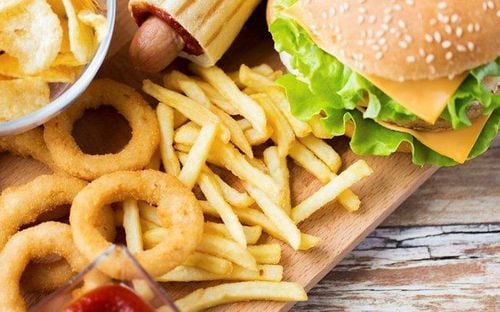
Đồ ăn nhanh cần hạn chế ăn tối đa
2.9. Avoid alcohol use
Studies have shown that small amounts of alcohol, such as a glass of red wine, can provide a number of health benefits. However, when it comes to weight loss, alcohol provides extra calories without providing much nutritional benefit. In addition, alcohol may be associated with the possibility of weight gain and may lead to more fat storage around the organs, or accumulation around the abdomen.According to research, there is no recommended safe alcohol level for nursing mothers. Experts recommend that the safest option for babies is for nursing mothers to not drink alcohol at all. When you're in a good mood, choose some healthy foods to "celebrate" rather than alcohol.
Being overweight after pregnancy as well as postpartum is common and there is nothing for mothers to feel frustrated about themselves. However, getting back to a healthy weight quickly will benefit the mother's health as well as any other future pregnancies. Having good health will allow mothers to enjoy time with their children and get the most out of their roles as parents. The best and most viable way to lose weight is through a healthy diet, breastfeeding and regular exercise.
After giving birth, the mother's body changes, she may suffer from many diseases and have a large weight compared to the period before pregnancy. Therefore, to ensure health, after giving birth, a mother can perform a general health examination at Vinmec International General Hospital to assess her postpartum health. Mothers will have the opportunity to visit with leading specialists in the field, combined with many other specialties to give advice, care, and help improve their health, postpartum weight, as well as ways to take care of them. children are good so that the mother can soon regain her shape without affecting her health later.
Please dial HOTLINE for more information or register for an appointment HERE. Download MyVinmec app to make appointments faster and to manage your bookings easily.
References: livescience.com, .healthline.com, parents.com




